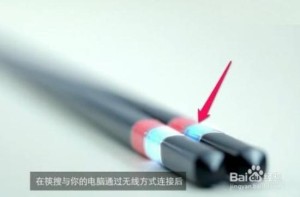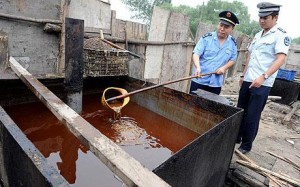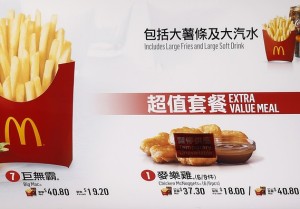Reuters reports that a slew of food safety scandals has stoked China’s hunger for higher quality products that would sustain consumption of protein-rich farm commodities even as its economy slows, a top executive of leading commodities trader Cargill Inc said.
 China is toughening its fight against food safety violators in the face of rising incidents of food scares since a deadly scandal in 2008 when dairy tainted with industrial chemical melamine led to the deaths of at least six infants.
China is toughening its fight against food safety violators in the face of rising incidents of food scares since a deadly scandal in 2008 when dairy tainted with industrial chemical melamine led to the deaths of at least six infants.
It is also prompting the country, the world’s top importer of soybeans and a major buyer of corn, to move from backyard hog farms to mechanized modern plants requiring higher volumes of grain-based compound feeds.
“The Chinese population has become highly sensitized to food safety and rightly so,” Cargill Vice Chairman Paul Conway told Reuters in an interview. “For commodities which go into direct human consumption or via meat, we don’t see a slowdown in China.”
A growing middle-class that craves for more high-protein and safe food products would also ensure China’s consumption of agricultural commodities would remain high even as economic growth slows to 6-7 percent.








